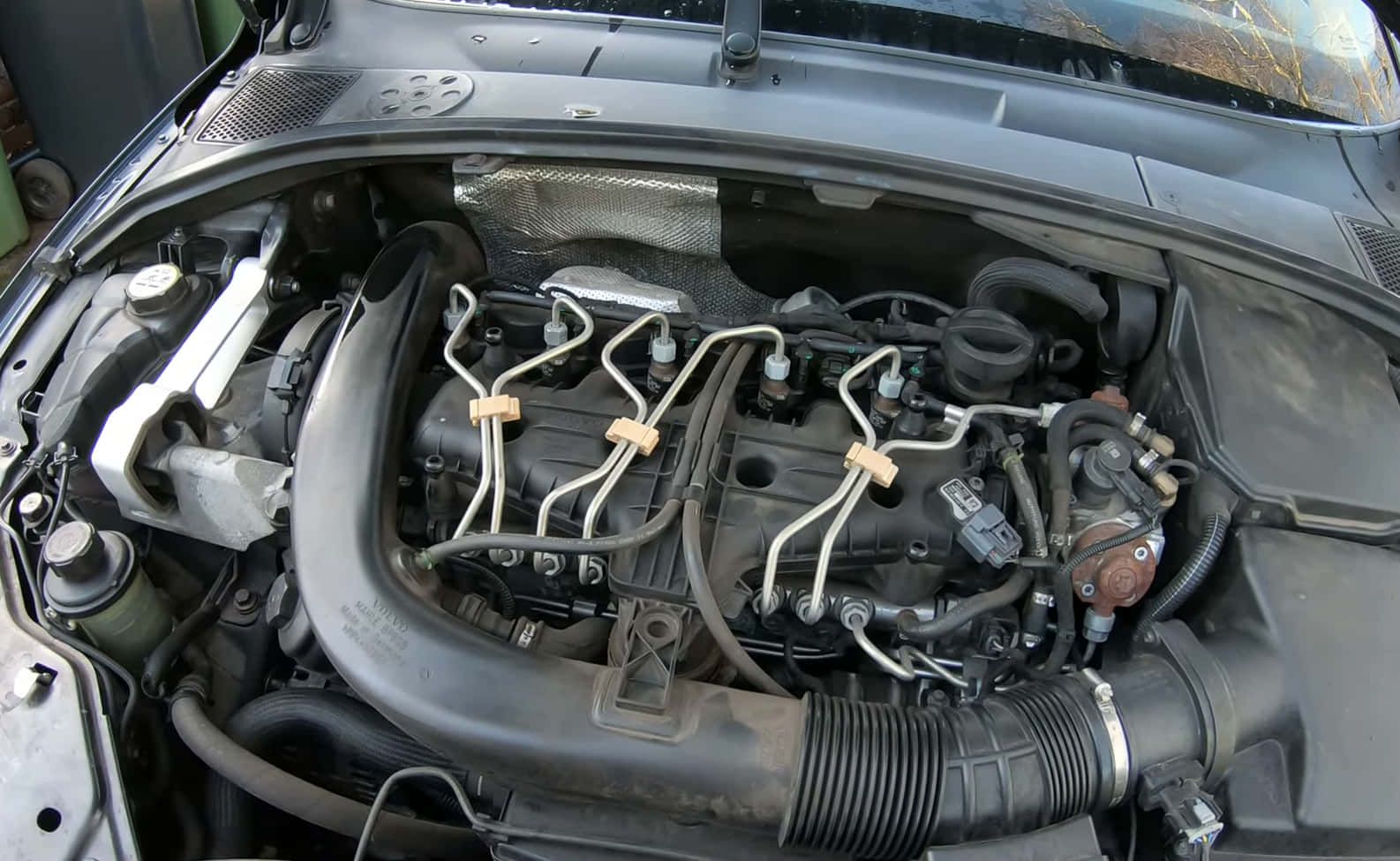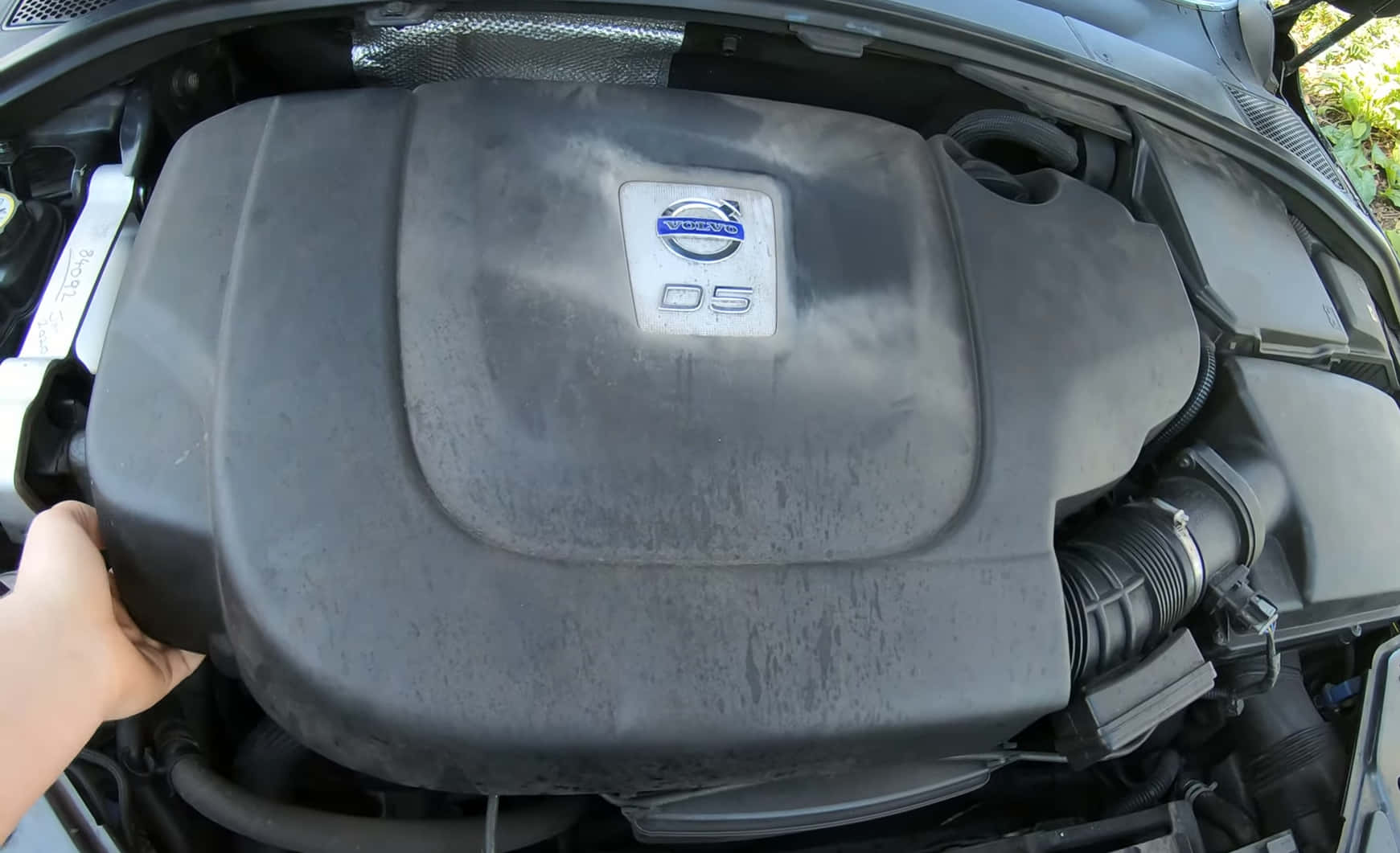Perhaps you are currently dealing with some Volvo D5 engine problems.
Or you want to be prepared in case the time comes that these issues occur, and so you want to know what to expect.
Whatever your reasons may be for checking out this post, we can help you out. Discover more about these Volvo D5 engine issues, how to address them, and ways to prevent them.

Contents
Volvo D5 Engine Problems
Before we go right ahead to these engine problems, let’s first talk a bit about the Volvo D5 to have a better understanding on why these issues occur.
The D5 is a turbocharged diesel engine, which is all-aluminum and five-cylinder. The first generation D5 engine first came out in 2001 while the second generation was in 2005. There was a minimal reduction in the stroke, as well as the compression ratio to the second gen D5 engine. However, there was an improvement to the EGR system and injectors to the common-rail direct injection.
As for the third generation D5 engine, it came out in 2009. The compression ratio was reduced even further and the EGR system was improved, as well.
Along with Polestar, D5 engines had software upgrades. Although these upgrades did not have any impact on fuel consumption and emission figures, torque gains and power were over 10 percent.
Although there were some improvements to the Volvo D5, certain issues with the engine were still observed. These are:
1. Engine Failure
Issues with the engine failing abruptly were some of the most common complaints by Volvo owners. This is typically due to cooling fan concerns. Once the cooling fan stops working efficiently, the engine overheats. Thus, this causes engine failure.
Without the cooling system, this prevents the engine from operating at an optimal temperature. This is why it impacts the engine’s performance and lifespan.
2. Increased Oil Consumption
Another common Volvo D5 engine problem is an excess in oil consumption. To make sure your vehicle is well-maintained, you need to use adequate oil and the right type. When your engine is starting to malfunction, it ends up using too much oil. As a result, you need to check the oil level regularly and to top up as needed.
It is also worth noting that there are many Volvo D5s with cracks in the fuel lines found in the engine compartment. This is why fuel leaks out in the engine compartment over time due to the pressurized fuel system.
When there is an internal leakage in your Volvo, the oil tends to leak right from the weep hole. It can also occur in the metal tube and rubber hose from the tank and to your fuel pump. This leak happens once these components encounter issues such as rusting.
3. Power Steering Leakage
The leakage happens when your hose that is responsible for transporting your power steering fluid to the system begins to leak. Hence, it can get quite tricky to control your vehicle.
When you start the car, this leads to the fluid getting pumped right to the rack. Any movement eventually changes this into foam. But it should be easy to fix this problem and a visit to a professional should get it straightened out.
4. Bad Fuel Economy
Engine problems can also lead to poor fuel economy. As compared to BMWs and Mercedes-Benz, Volvo accelerates slowly. This uses up more fuel, which is why it is not the most fuel efficient vehicle.
Moreover, the more you step on the gas pedal to further accelerate, the greater amount of fuel is used.
The best way to address this issue with fuel economy is by avoiding accelerating hard. You should also change the oil filter to make sure it works more efficiently while improving the performance of your engine.
How Long Does The Volvo D5 Engine Last

Now that you know some of the issues with the Volvo D5 engine, let’s talk about lifespan. So, how long does the engine last, anyway? And what can you possibly do to make sure that the engine does not fail prematurely?
When maintained properly, the Volvo engine should last for about 200,000 miles or even longer. So, if you only drive about 15,000 miles per year, then it means that you can expect the engine to last for 13 years or so. This is why the Volvo D5, in particular, is one of the most dependable models in terms of engine and performance.
Moreover, by complying with the recommended maintenance schedule, you can expect the engine to last longer than 200,000. Important maintenance routines such as brake fluid replacements and oil changes, as well as getting repairs done sooner than later can all help to prolong the lifespan of your car’s engine.
When your Volvo D5 reaches more than 75,000, you should be more proactive in taking care of it. This is usually the time when problems start to emerge, which is why you should make it a priority to adhere to maintenance schedules as recommended by the manufacturer.
But it is important to take your vehicle to the right professionals. Make sure that you only go to authorized Volvo mechanics and technicians who can thoroughly address the issues and conduct the required repair work to keep your vehicle performing well.
Read More: Most Common Volvo Truck Light Control Module Problems
Wrapping Up
Overall, the Volvo D5 engine is reliable and robust. But there are certain instances when problems do occur because of poor maintenance routines or repair work not carried out promptly.
With all these being said, it is very important to avoid delaying maintenance work to your Volvo D5. When you observe any of these signs of engine problem occurring, it is best to get them addressed by an authorized Volvo mechanic sooner than later. This way, you can help to prolong your vehicle’s lifespan and prevent further issues and more expensive repairs from developing.